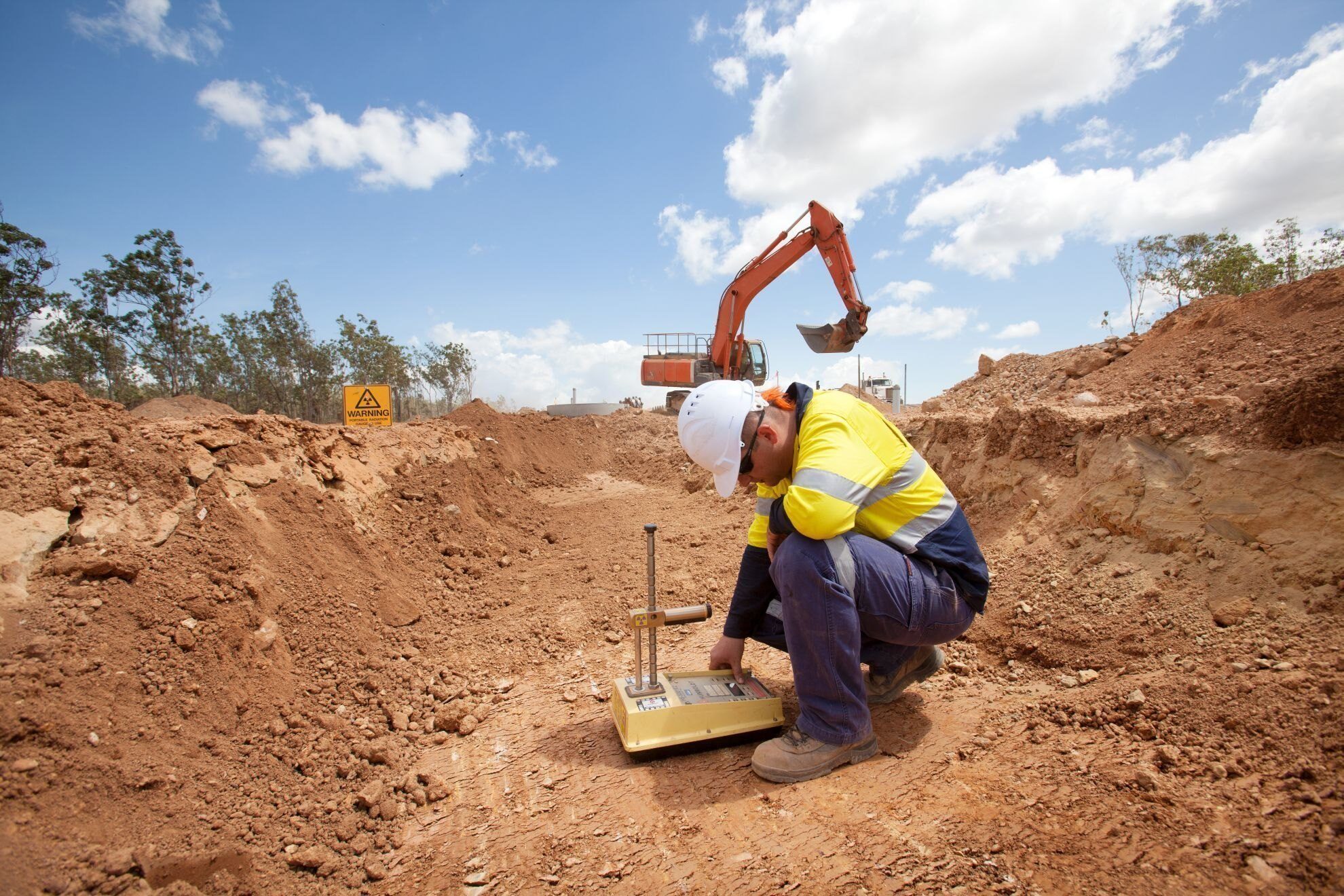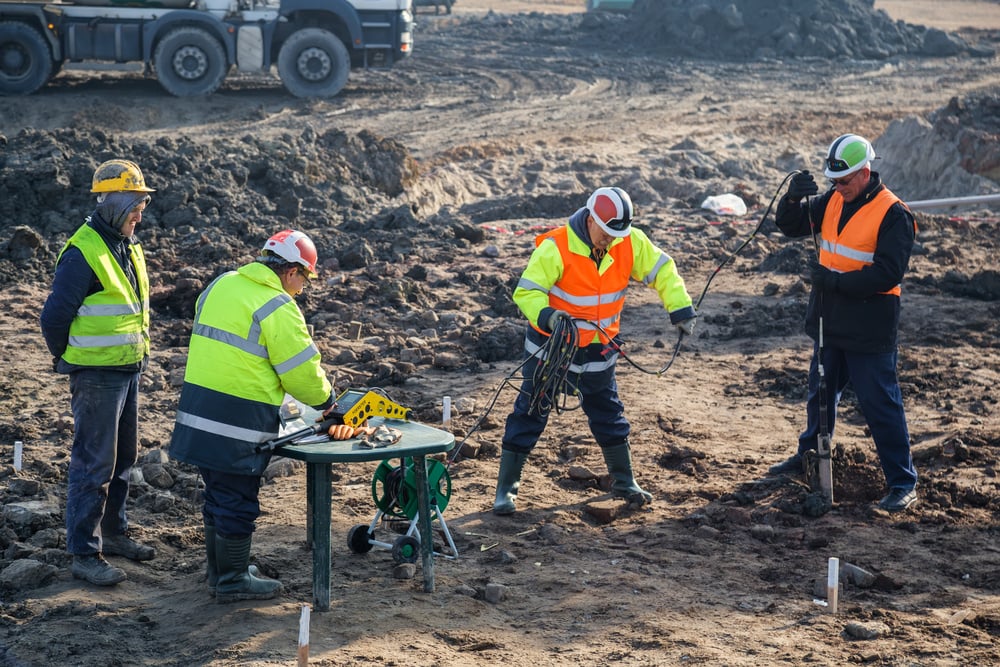The Buzz on Geotechnical Engineering For Construction Projects
The Buzz on Geotechnical Engineering For Construction Projects
Blog Article
Geotechnical Engineering For Construction Projects Things To Know Before You Get This
Table of ContentsSome Ideas on Geotechnical Engineering For Construction Projects You Should KnowGeotechnical Engineering For Construction Projects - The FactsGeotechnical Engineering For Construction Projects Fundamentals ExplainedAn Unbiased View of Geotechnical Engineering For Construction ProjectsThe smart Trick of Geotechnical Engineering For Construction Projects That Nobody is Talking AboutIndicators on Geotechnical Engineering For Construction Projects You Should Know5 Easy Facts About Geotechnical Engineering For Construction Projects DescribedThe Buzz on Geotechnical Engineering For Construction Projects
Accompanying this raised complexity comes geological and environmental elements that affect the style of the structure, which is perhaps one of the most fundamental part of any growth. People require to trust that structures, bridges, and streets will certainly stand the test of time. A Geotechnical engineer advises on exactly how a structure can best be sustained giving its special circumstances What's hidden listed below the surface area of the ground is likely the most crucial piece of information that a Geotechnical Engineer seeks.These samples are then examined by the laboratory to figure out dirt composition (Geotechnical Engineering for Construction Projects). The break down of sand, silt, clay, and various other materials existing in the soil, assists the designer establish what distinct features the website has and what the ramifications of those may be. Obviously soil composition is just one test that can be carried out on examples
Our Geotechnical Engineering For Construction Projects Statements
Based upon these examinations, there might be much more soil borings that are drilled, or the designer might have enough details from the preliminary examinations to make a referral to the customer on just how best to wage their task. Results are usually reported with borings logs which show the soil structure and features at a range of depths.
Geotechnical engineers are accountable for understanding the properties of all-natural resources and utilizing this expertise to create risk-free, cost-efficient designs for construction tasks. It is an essential component of any civil engineering project, as it is made use of to establish the viability of a website for building and construction and to make sure the framework's safety.
This includes executing research laboratory tests on the examples and utilizing geophysical methods such as seismic refraction and electric resistivity studies. This data is made use of to analyze the site's viability for building and construction and to figure out the sort of structure that must be made use of. Geotechnical design analyzes soil problems, determines potential hazards, chooses a suitable structure system for the proposed framework, and figures out the very best structure design for an offered project.
All about Geotechnical Engineering For Construction Projects
The framework might end up being unstable or collapse without proper soil stabilisation, leading to costly repair services and prospective injury. The stabilization process involves using various techniques to boost the security of the soil, such as compaction, grouting, and the enhancement of reinforcing materials. Without dirt stablizing, the dangers related to building and construction tasks would be much higher, and the outcomes a lot less trusted.
It is a process utilized to boost the buildings of dirts. Geotechnical engineers conduct site investigations to evaluate the dirt's properties and recognize potential threats. They additionally create foundations and other frameworks that require to be developed on the website, considering the dirt's attributes. They create and apply soil stabilization methods, such as adding concrete, lime, or various other maintaining agents, to boost the soil's toughness and stability.
The 3-Minute Rule for Geotechnical Engineering For Construction Projects
Geotechnical engineers are necessary in aiding to make sure that soil stabilization is done properly to make sure that the framework is safe and safe and secure. Geotechnical design is additionally have a peek at this website made use of to assess soil conditions and recognize prospective hazards. This includes analyzing prospective flooding, landslides, and various other natural catastrophes that could affect the structure.
Geotechnical engineers use this knowledge to carry out site examinations, dirt, and rock testing, and to interpret the results to figure out the ideal style criteria for a job. This information is utilized to guarantee that the structure, keeping walls, slopes, and various other frameworks improved or within the subsurface products have adequate stability and resistance to exterior lots, such as quakes, wind, and water.
These frameworks need a deep understanding of the behavior of the subsurface products, in addition to the capability to manage the influence of excavation and building and construction on the surrounding atmosphere. Geotechnical engineers utilize their knowledge to identify the ideal design criteria for these frameworks, such as the dimension and form of the passage, the toughness of the sustaining rock, and the type and amount of assistance needed.
In addition to the design and building of frameworks, geotechnical engineering also plays an important role in the rehabilitation and upkeep of existing structures. As frameworks age, they may experience deterioration or various other problems that affect their security and performance. Geotechnical designers use their expertise to examine the condition of these frameworks, identify the sources of the problems, and develop strategies to resolve them.
Some Known Details About Geotechnical Engineering For Construction Projects
In this write-up, I will review the function of geotechnical design and the sorts of problems geotechnical engineers solve. Geotechnical engineers (geotechs) are included in virtually every sort of civil engineering project. After all, every structure is supported by soil or rock unless it is floating, flying, or dropping.
Geotechs are generally most included at the beginning of a task. Geotechnical Engineering for Construction Projects. Some of the tasks that a geotech may be liable for are checking out subsurface conditions, figuring out needed laboratory testing of soil and rock, translating the subsurface exploration outcomes, and creating reports that document the site conditions and give suggestions for foundations, fill specs, slope stability, and so on
It is not uncommon for geotechnical designers to focus on just one of the locations detailed above and study that subject their entire career. Geotechnical design is an important facet of any civil design job. Despite how excellent a structure is developed, it will not be great for long if the structure is insufficient.
About Geotechnical Engineering For Construction Projects

Sometimes, points that may not seem vital end up being vital years later top article on when problems occur. One last thing to bear in mind: geotechnical design is married to geology. No issue exactly how fantastic your design knowledge is, if something essential is missed out on in the geologic characterization at a website, your knowledge may not save you.
Jese lives in West Virginia with his other half and kid. He takes pleasure in crawling around on any type of landslide he can find and hanging out fly fishing on the water. He can be located on LinkedIn. I wish you appreciated this week's blog post by guest author Jese Vance. If you're interested in your company perhaps signing up with the Civil Engineering Collective, please click site contact us right here or call us at 800-920-4007. I hope you'll join us.
Get This Report on Geotechnical Engineering For Construction Projects

It is essential to understand the soil condition prior to designing the kind and depth of foundation required for the structure. In order to know the subsurface dirt problem, a geotechnical investigation is needed.
The Main Principles Of Geotechnical Engineering For Construction Projects
When the test results come, the Geotechnical Engineer analyses the record, which outlines the soil and rock buildings groundwater condition and the associated dangers. The kind of foundation called for to build the structure is after that established. Based upon the suggestion of the Geotechnical Designer, the structural engineer after that creates the structure.
Report this page